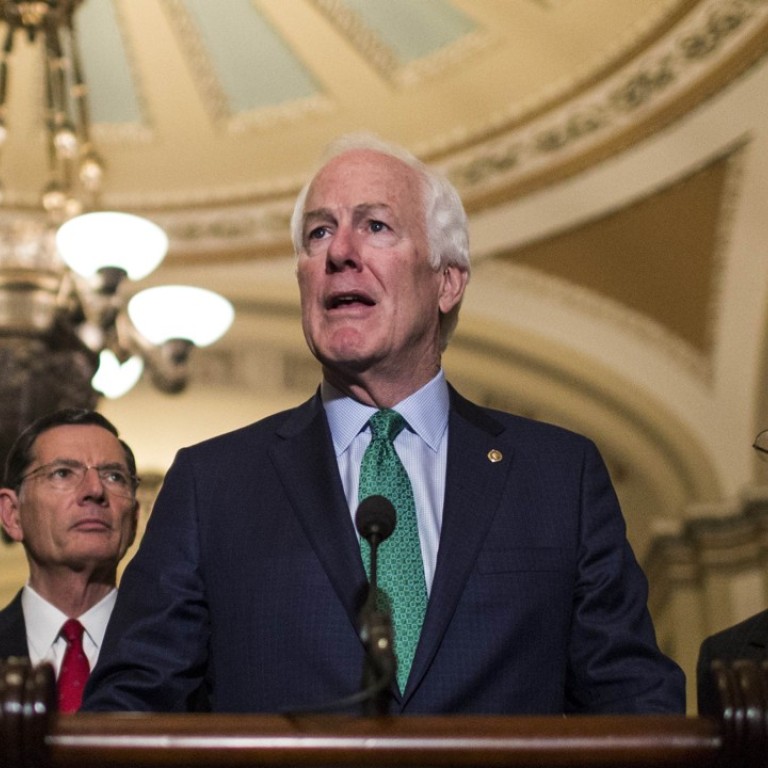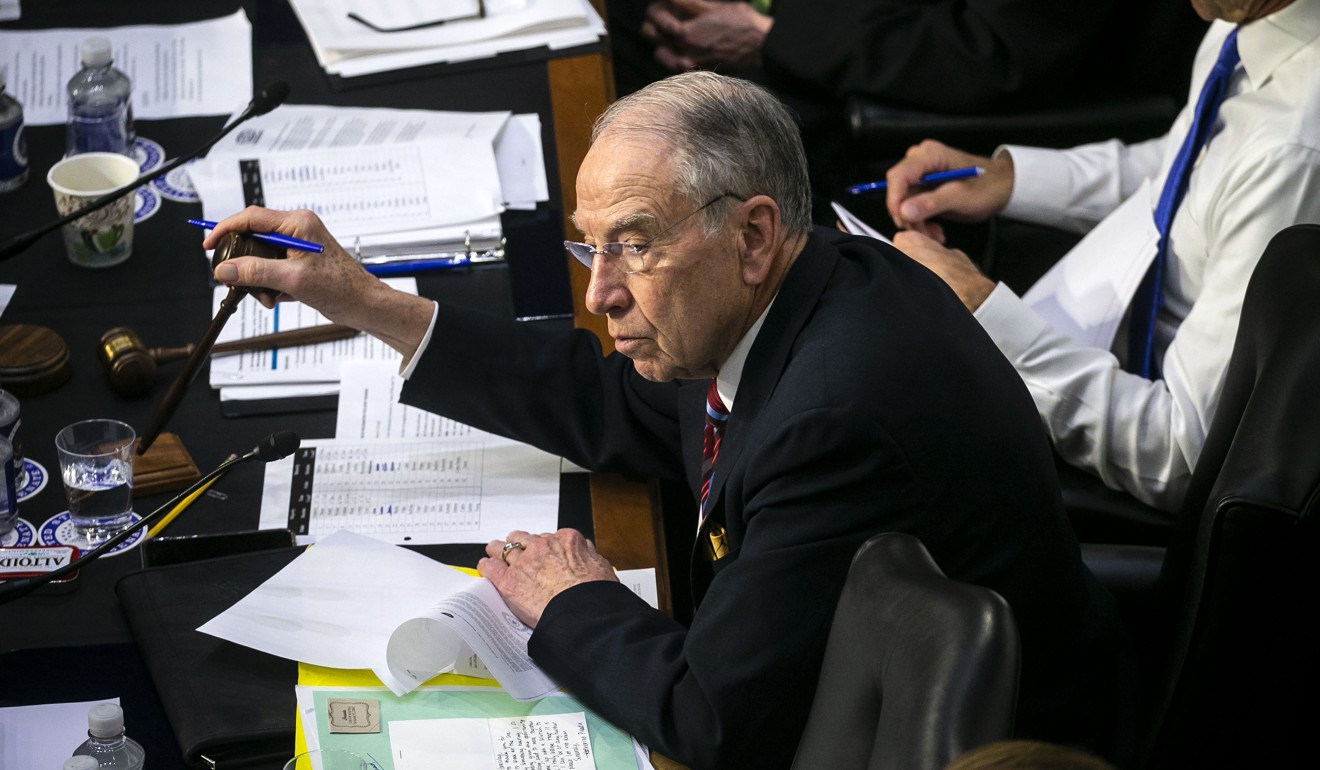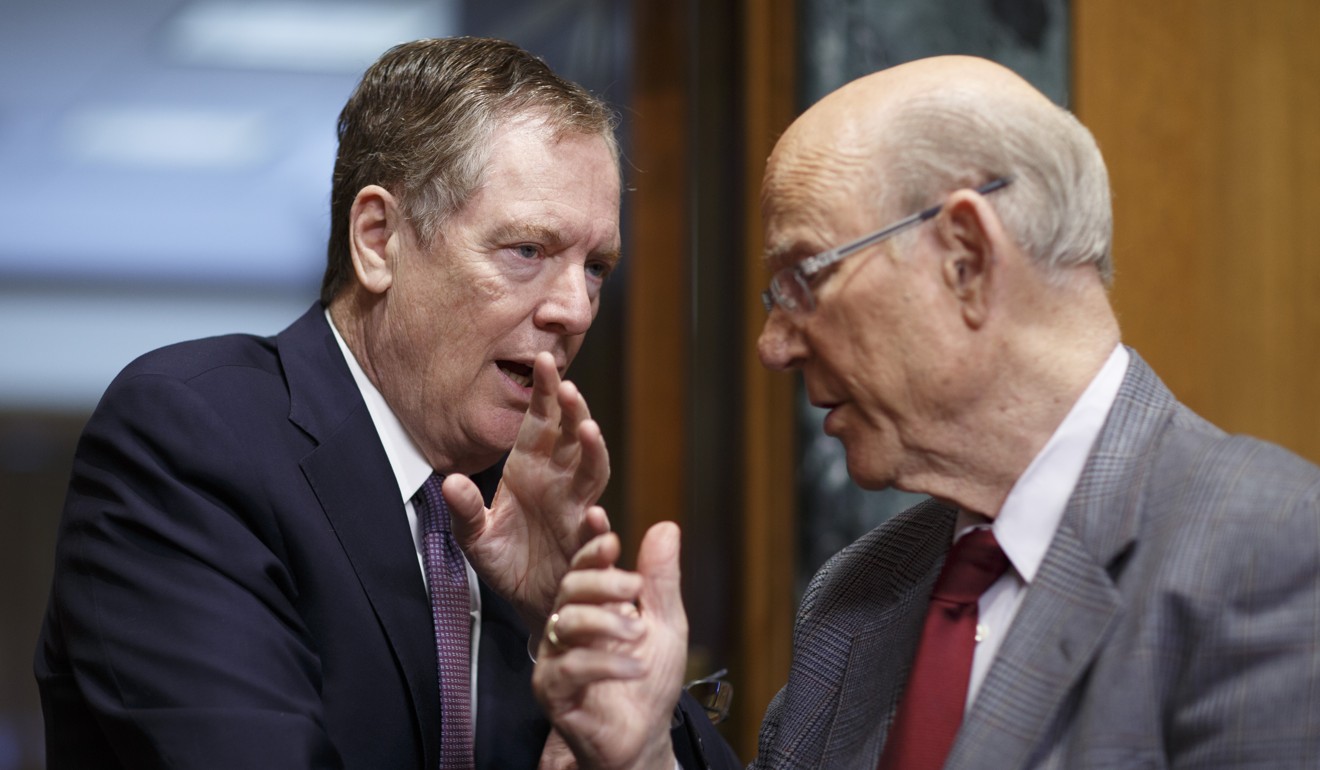
US Senators slam ‘immoral’ and ‘coercive’ Beijing after meeting with industrial experts over Chinese IP laws
Advisors at the congressional hearing warned of China’s rising supremacy in the ‘historic’ innovations of AI, 5G and quantum computing
China was slammed as “immoral” and “coercive” by US lawmakers on Wednesday as the nation’s industrial experts testified in a Senate hearing meant to shed light on issues central to a looming trade war US President Donald Trump and Beijing.
“I came away with the opinion that they’ll do anything legal or illegal, anything moral or immoral, anything ethical or unethical to get ahead and to stay ahead,” Senator Chuck Grassley (Republican, Iowa) said of a recent trip he took to China as part of a congressional delegation.
Senator John Cornyn (Republican, Texas), who chaired the hearing, said: “In many instances, China has simply used trade as a weapon, coercing US companies to enter into joint ventures and other business agreements that require the company to hand over key technology and know-how, the so-called ‘secret sauce’, simply in order to gain market access.
“This practice has already begun to erode America’s technological advantage and undermine our defence industrial base.”

Witnesses appearing before the Senate finance committee included Dean Garfield, president of the Washington-based trade association Information Technology Industry Council, who said: “We are experiencing now innovations like AI, 5G and quantum computing that are some of the most historic in human history.
“China recognises that and is doing things that are both legitimate and illegitimate to put its thumb on the scale in favour of its local champions so they can corner the market on the frontier innovations of the future.”
Cornyn is the co-author of the Foreign Investment Risk Review Modernisation Act (FIRRMA), which would widen the scope of government reviews of foreign investments on national security grounds.
The Texas senator has tried to cajole lawmakers into supporting the act to stop China from using its “tentacles” to undermine American security through the acquisition of advanced technologies.
Last month, Trump announced his decision to impose punitive tariffs on US$50 billion worth of annual imports from China and has threatened to target US$100 billion more following an investigation by the US trade representative.
The so-called Section 301 investigation determined that Beijing’s regulations unfairly force US companies operating in China to transfer their intellectual property to local joint venture partners.
China has announced reciprocal action on more than US$50 billion of imported American goods.
Some lawmakers and advisors at the hearing in Washington questioned the wisdom of tariff action as a solution.
Trade war will probably not end in Armageddon, but be wary
“We don’t think that turning to things like escalating tariff threats are going to be an effective way to secure meaningful systemic reform in China,” said Christine Bliss, president of the Washington-based Coalition of Services Industries.
Bliss said working with Washington’s allies to take joint action aimed at coercing Beijing to give foreign companies more market access would be more effective.

Senator Pat Roberts, a Republican from Kansas, warned the committee that, because Beijing has targeted agricultural imports from the US in its retaliatory tariff measures, Trump’s strategy is “pitting America’s factory workers against farmers”.
Roberts, Cornyn and Garfield agreed that the Trump should reconsider his decision to withdrawal from the Trans-Pacific Partnership. Joining the trade pact, which is pressing ahead as an 11-member bloc, would give US farmers and manufacturers more options for overseas sales, they said.
“It strikes me that TPP might be one of our best instrumentalities to try to engage China constructively on trade and leverage our allies as many of you said we should be doing,” Cornyn said.

